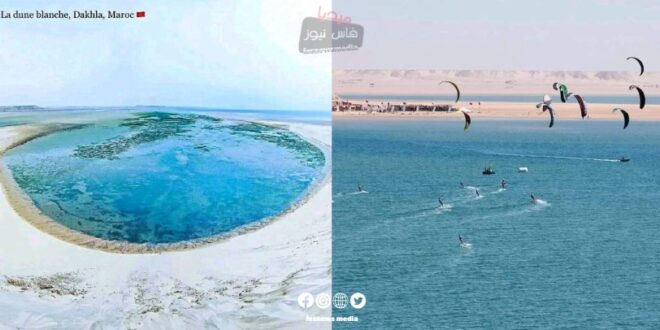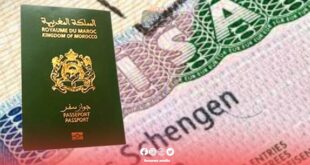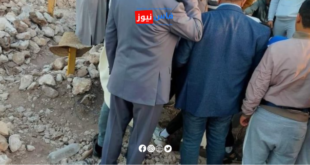Official sources have revealed that the Kingdom of Morocco is set to launch a massive project to develop the Moroccan Sahara, transforming it into a world-leading tourist and commercial destination. The plan aims to enhance infrastructure, attract foreign investments, and establish hotels, resorts, residential and commercial complexes, as well as factories and skyscrapers.
The Kingdom aspires to make Saharan cities, especially Laayoune and Dakhla, competitive with major global cities in tourism and trade. In this context, a local resident in Dakhla stated, “Although we will miss the natural landscapes, these projects will provide numerous job opportunities for the region’s youth, which will reduce migration to northern cities or abroad.”
The Moroccan government views hosting the 2025 Africa Cup of Nations and co-organizing the 2030 World Cup with Spain and Portugal as golden opportunities to attract investments and tourists to the region.
Morocco also seeks to enhance the Moroccan Sahara’s role as a regional and global trade center through a royal initiative to facilitate Sahel countries’ access to the Atlantic Ocean, and the development of the Atlantic port of Dakhla.
Other strategic projects include the Nigeria-Morocco gas pipeline project, the construction of seawater desalination plants, and investment in renewable energy projects such as wind farms and solar power stations.
Regarding transportation infrastructure, the opening of a section of the expressway between Guelmim and Laayoune has been announced, with plans to launch a railway line connecting Agadir to Laayoune. Additionally, Moroccan and foreign investors intend to launch a new airline called “Air Oasis,” which will be headquartered at Dakhla Airport and will operate domestic and international flights.
These initiatives collectively aim to transform the Moroccan Sahara into a vibrant and prosperous region, enhancing the economic and social development of the area and its inhabitants.
The new airline will operate domestic flights within Morocco and to European airports, with a fleet consisting of Brazilian Embraer and European Airbus aircraft.
Through these ambitious plans, Morocco aims not only to develop the Western African region through its South-South cooperation policy but also to establish the Atlantic port of Dakhla and the Moroccan Sahara as a whole as a center for global trade.
The Nigeria-Morocco gas pipeline project is expected to contribute to providing energy and many essential needs for daily life to Moroccan Saharan citizens and Moroccans in general, from Tangier to Lagouira.
These developments, along with existing projects like the world’s largest solar power plant in the Moroccan Sahara, underscore Morocco’s commitment to sustainable development and its vision to position the Sahara as a key player in the country’s economic future.
 فاس نيوز ميديا جريدة الكترونية جهوية تعنى بشؤون و أخبار جهة فاس مكناس – متجددة على مدار الساعة
فاس نيوز ميديا جريدة الكترونية جهوية تعنى بشؤون و أخبار جهة فاس مكناس – متجددة على مدار الساعة













